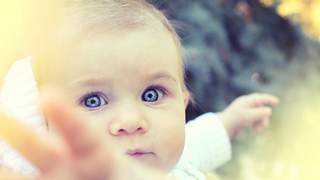'Three-parent babies' technique 'should not be used on girls'

The widely-criticised 'three-parent babies' technique should not be used to create baby girls, a group of leading American academics has said.
The technique, which adds cellular material from a third person to a human embryo, has recently been approved for use in Britain, making it the first country in the world to legally permit the practice.
Many concerns have already been raised as to the ethics of ‘three-parent babies’, including the unknown consequences of genetic material from three 'parents' being passed down the human germline.
Now, a report from the US National Academies of Sciences, Engineering and Medicine (NAS) has recommended that the technique should only be used on male embryos until further research has been carried out, because girls can pass on faulty mitochondrial DNA to future generations.
Added to the many existing concerns about ‘three-parent babies’ is now the risk that female babies will be destroyed while the technique is being tested on male embryos.
Mitochondrial transfer
'Three-parent baby' technologies, or mitochondrial replacement techniques (MRT), involve the addition of a third person’s genetic material in the creation of a baby.
MRT would replace the faulty mitochondrial DNA of the mother with the healthy mitochondrial DNA of a donor’s egg. This is accomplished by manipulation of an egg or zygote (fertilised egg).
The nuclear DNA from the egg of the mother, who is affected by mitochondrial DNA disease, is preserved, while her mitochondrial DNA is replaced with the donor's.
Mitochondria are the ‘power houses’ of the cells, and mitochondrial DNA is passed down via the mother.
Heritable genetic modification
The NAS report has confirmed that, in the case of female embryos, genetic modifications of mitochondrial DNA would be passed on to future generations.
The report recommended that, for this reason, only male embryos created through this technique should be implanted into the womb through IVF.
Female embryos would be destroyed:
"The recommended restrictions and conditions for initial clinical investigations include…transferring only male embryos for gestation and to avoid introducing heritable genetic modification during initial clinical investigations".
The Human Fertilisation and Embryology Authority (HFEA) had not recommended restricting the technique to males only, arguing this would reduce its efficiency, as less embryos would be transferred to the womb.
Gender-selection and eugenics
Andrea Williams, Christian Concern’s Chief Executive, commented on the implications of the NAS report:
"Here we see the chaos caused by a disregard for the sanctity of life.
"These recommendations are shocking, and prove that the technique cannot be justified as an ethical practice in any way," she said.
"This report confirms that any genetic modification is heritable in the case of females – and no-one is aware of the consequences. Yet now, to counter this risk, the NAS recommends that all female embryos should simply be destroyed. That is gender-selective destruction of life."
The NAS report also warned of other concerns about 'three-parent babies', which have been raised by many others:
"As a form of genetic modification of germ cells [eggs and sperm], MRT raises concerns about interference with nature, ‘playing God’, eugenics, and the potential impact on persons with disabilities."
Sadly, the NAS report stopped short of recommending a blanket prohibition on the practice.
Listen to Andrea Williams discuss concerns about 'three-parent babies' on BBC 3 Counties Radio.
Related News:
UK scientists to begin genetic modification of human embryos
UK 'playing God' with three-parent babies
Prenatal test may lead to gender-abortions
Related Coverage:
Britain has jumped the gun on gene editing (Telegraph)
'Three-parent babies': IVF technique should not yet be used to create girls, report says (Independent)
